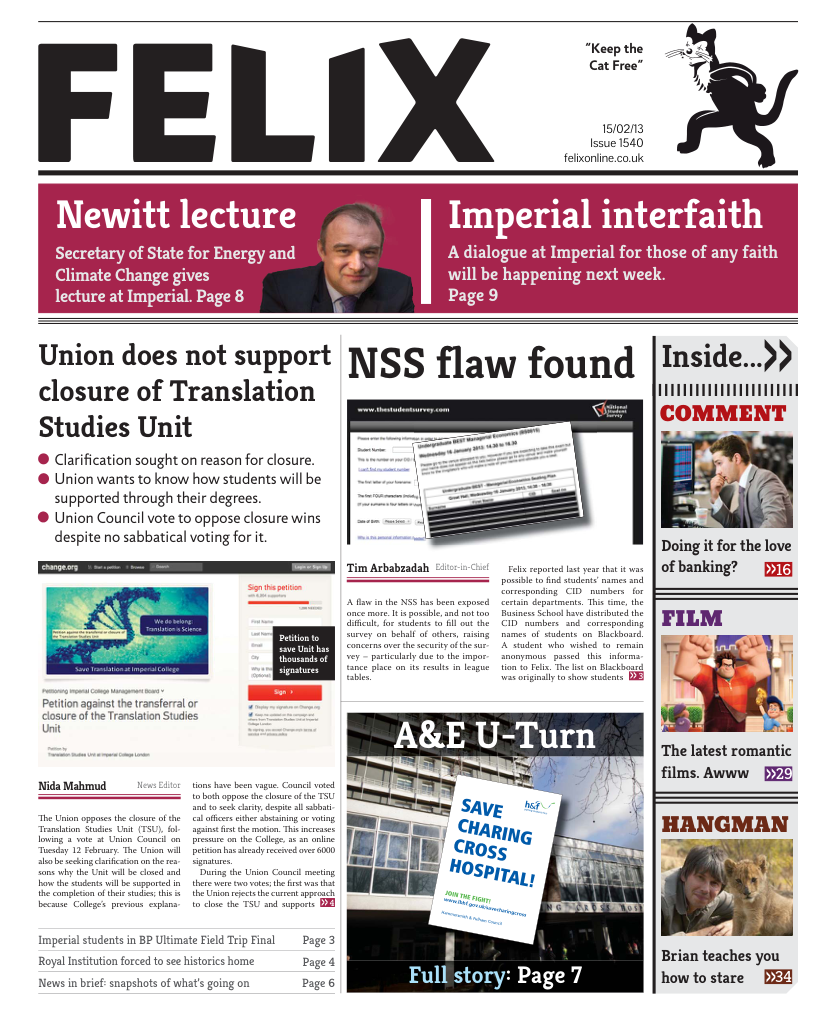Union Council votes for access to medicines paper
Motion passed despite sabbs not voting for it

The motion ‘Imperial College Union Access to Medicines Policy’ was proposed to the Union Council on Tuesday by ICSMSU President Shiv Vohra and seconded by Kush Nake. The motion was passed. In brief, this motion was proposed in order for the Union to actively campaign to persuade Imperial College to sign the Global Access Licensing Framework. This enables affordable versions of research developed medicine to be made available in medical resource-limited countries. This framework was published by the international student-led organisation Universities Allied for Essential Medicines under the guidance of various experts.
The same motion was proposed last year in December 2012 and was not approved because of insufficient Council members voting in favour. This time round, 24 Council members voted in favour, which meant it passed. All sabbatical officers abstained from voting or voted against. When asked, Paul Beaumont, Union President, replied: “I voted against the motion because I believe the Union Council should base decisions only on something that has been fully researched. No-one knows what the impact of the proposal would have on College finances (as was admitted by the author in the meeting), and therefore on students should the College implement the framework.”
The motion provided the following statistics and information. A third of the world’s population lack access to essential medicines and each year, 10 million people die from treatable diseases. 10% of funded research on medicine is spent on health problems that affect 90% of the world’s population, the Neglected Tropical Diseases (NTDs). Industry is increasingly relying on academia for new drug targets because universities are an important source of new medicines and drug targets. Presently, Imperial College develops and patents many of its healthcare-related technologies, which are licensed to members of the pharmaceutical industry. This makes it difficult for medicine to be produced inexpensively. Universities including Oxford, Harvard and Yale have had important roles in increasing access to needed medicines by implementing Global Access Licensing Policies and have not seen a negative impact on licensing nor profits. Generic pharmaceutical production has been shown to be the most effective method of ensuring access to resource limited countries by reducing prices of medicine as a result of competition. If Imperial College avoids patenting healthcare-related technologies, there is an increased opportunity for prices of medicine to be made affordable to those who need them.
The motion put forward on Tuesday believes that the products of publicly funded research should be made available to all members of all societies and that research value should be measured on the impact it makes on society. Furthermore, the motion believes that Imperial College students should be encouraged to learn about and consider a research career in the field of the diseases that affect 90% of the world’s population.
Imperial College Union resolves to actively campaign for Imperial College to sign onto the Global Access Licensing Framework. The Union also resolves to support inclusion of neglected diseases topics on all relevant course curriculums, particularly those in the Department of Life Sciences and Faculty of Medicine and to encourage UROP (Undergraduate Research Opportunities Programme) projects on NTDs.







